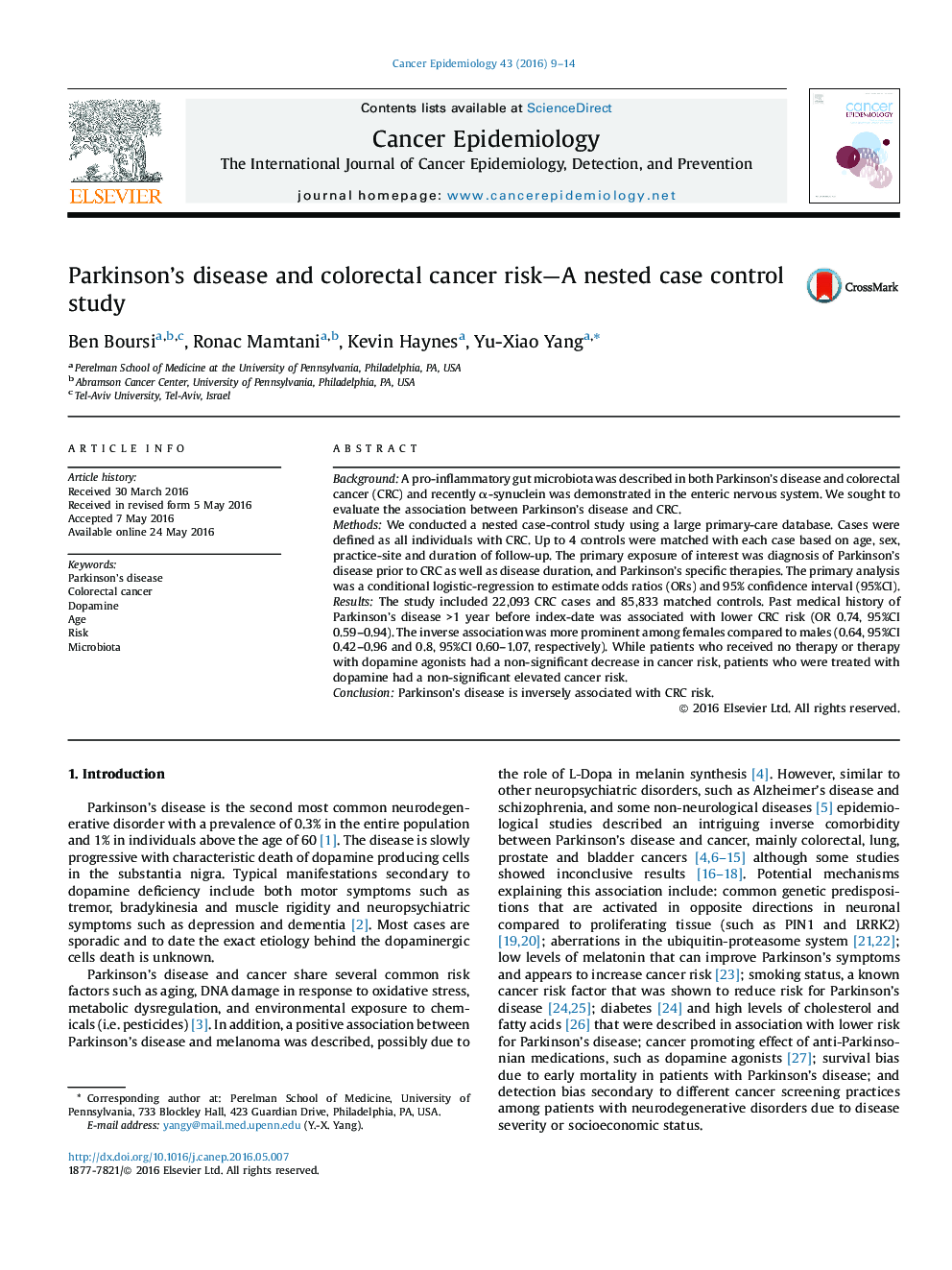| Article ID | Journal | Published Year | Pages | File Type |
|---|---|---|---|---|
| 2108818 | Cancer Epidemiology | 2016 | 6 Pages |
•Previous studies suggested a role for gut microbiota in the pathogenesis of both Parkinson’s disease and colorectal cancer (CRC).•The current population representative study demonstrated an inverse association between Parkinson’s disease and CRC risk.•There was no significant association with past antibiotic exposure, disease duration or Parkinson’s specific therapy.
BackgroundA pro-inflammatory gut microbiota was described in both Parkinson’s disease and colorectal cancer (CRC) and recently α-synuclein was demonstrated in the enteric nervous system. We sought to evaluate the association between Parkinson’s disease and CRC.MethodsWe conducted a nested case-control study using a large primary-care database. Cases were defined as all individuals with CRC. Up to 4 controls were matched with each case based on age, sex, practice-site and duration of follow-up. The primary exposure of interest was diagnosis of Parkinson’s disease prior to CRC as well as disease duration, and Parkinson’s specific therapies. The primary analysis was a conditional logistic-regression to estimate odds ratios (ORs) and 95% confidence interval (95%CI).ResultsThe study included 22,093 CRC cases and 85,833 matched controls. Past medical history of Parkinson’s disease >1 year before index-date was associated with lower CRC risk (OR 0.74, 95%CI 0.59–0.94). The inverse association was more prominent among females compared to males (0.64, 95%CI 0.42–0.96 and 0.8, 95%CI 0.60–1.07, respectively). While patients who received no therapy or therapy with dopamine agonists had a non-significant decrease in cancer risk, patients who were treated with dopamine had a non-significant elevated cancer risk.ConclusionParkinson’s disease is inversely associated with CRC risk.
